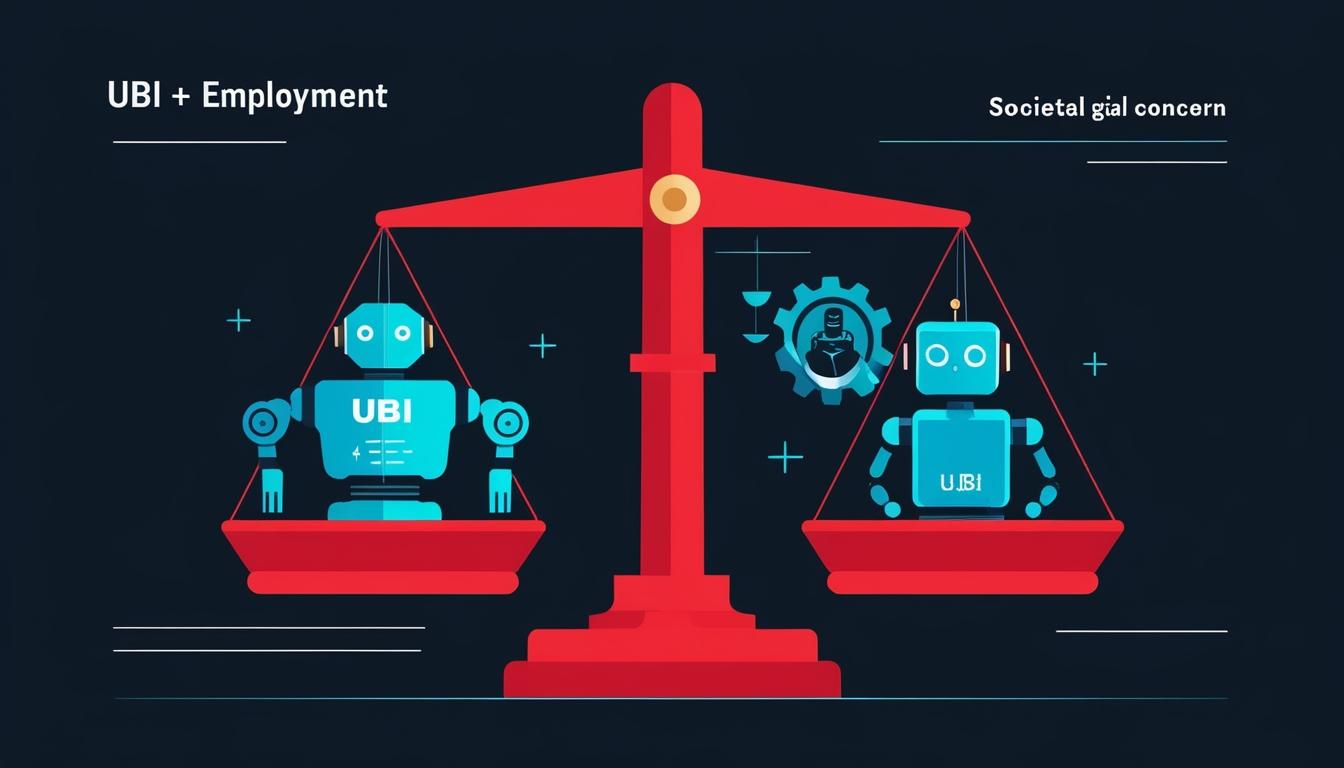The Bismarck Tribune is reporting on the ongoing discussion surrounding the implementation of universal basic income (UBI) as a potential response to the advances in artificial intelligence (AI) technology. As AI progresses and becomes increasingly integrated into various sectors, there is significant concern about the future of employment and the potential displacement of the workforce, including highly skilled professionals such as doctors and lawyers.
The concept of UBI posits that if AI reaches a level of sophistication that allows for the automation of a wide range of jobs, it would be necessary to establish a system where income is guaranteed to all individuals, irrespective of their employment status or existing wealth. The rationale behind this initiative is that, with lower labour costs due to AI adoption, businesses would contribute to a fund that would then provide a monthly income to every citizen. Proponents argue that such a system could alleviate poverty and give people the freedom to pursue personal interests and creative endeavours without the constraints of traditional employment.
However, this perspective is not universally accepted. There are voices of dissent concerning the possible ramifications of UBI, one of which is the potential detrimental effect on the nonprofit sector. Critics argue that a universal basic income could lead to a decline in charitable donations, which typically stem from individuals and corporations who have surplus resources. The essence of charitable giving rests on the recognition of varying life circumstances and the desire to contribute to societal betterment.
Statistics suggest that nonprofits account for over 5% of the United States’ GDP, contributing approximately $1.4 trillion to the economy. These organizations are pivotal in addressing social issues that other sectors may not tackle effectively. The fear is that with a general income provided to everyone, the financial capacity to contribute to charities would decrease significantly, thereby jeopardising the operational viability of these nonprofits.
Katie Fitzsimmons, a local auctioneer, encapsulated this sentiment during solicitation efforts with her remark: “Come on, it’s only money. We can go make more tomorrow.” The implication here is that if UBI is enacted, and the populace is reliant on a fixed income, the willingness and ability to make donations will diminish, particularly since many might find themselves living within the constraints of that basic income.
Additionally, while corporations might seem poised to fill the potential funding gap left by decreased personal donations, there are doubts as to their willingness to contribute generously following mandatory allocations to UBI. Observers speculate that mandated contributions could siphon resources away from charitable causes, leaving nonprofits in a precarious position.
Despite these concerns, it is noted that AI technology still has significant progress to make before exerting a tangible impact on employment. The trajectory of AI development has historically been characterised by exponential rather than gradual advancements, and forecasting its impact can be challenging given the unpredictability of technological innovation.
As these discussions unfold, it becomes evident that exploring the implications of AI and UBI is paramount, particularly in identifying and addressing potential pitfalls. Navigating this evolving landscape requires proactive engagement and consideration of how both AI advancement and UBI could reshape business practices and societal structures in the future.
Source: Noah Wire Services
